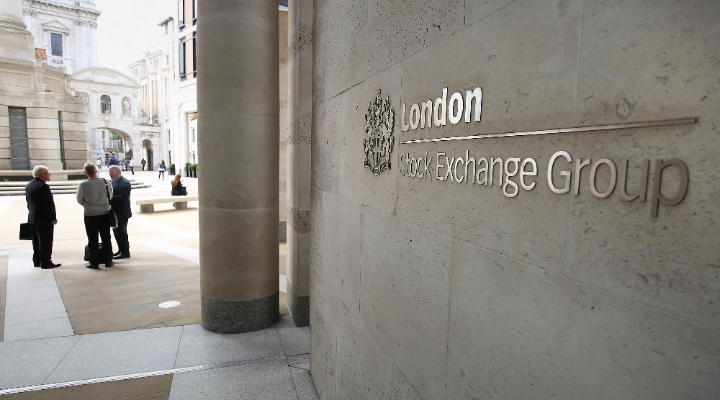
In the increasingly difficult hunt for yield, investors have in recent years looked at alternative income sources such as infrastructure, renewables, housing, and even music royalties. Last year’s dividend crisis, as well as low rates from bonds and cash, has made the search for reliable, steady income more pressing. Here we look at some options for alternative income-producing assets:
Property
Repeated lockdowns meant UK property funds and trusts had an awful year in 2020, but there are signs of tentative improvement as offices, shops and restaurants – the bedrock of the commercial property sector – gear up to re-open.
Property is one of the longest established and most diverse of alternative asset classes. From houses to office blocks, it has a long track record of providing income and capital gains, as well as being largely uncorrelated with equity markets. Mike Coop, head of portfolio management at Morningstar Investment Management, says that property as an asset class has a great advantage because of its scarcity value -- the limited supply provides something of a floor to its worth.
But could the predicited "death of the office" change all this? “Generally we feel that the office market will evolve but not change dramatically,” says Philip Waller, Manager of the JP Morgan Global Core Real Assets (JARA) trust, insists there will always be a role for retail assets within an income-focused property portfolio. Around 40% of his trust is weighted towards global property, and particularly the US and Asia Pacific markets.
Infrastructure
The JARA trust has around a 20% of its portfolio in infrastructure. It's one of the fastest growing asset classes of recent years and one that can often provide higher yields than real estate. That's likely to continue as governments the world over back infrastructure as a way of helping their economies recover from the pandemic.
As a diverse asset class, it’s important that investors know where their infrastructure income comes from, especially from an ESG perspective. For example, you might be in favour of building more EV charging points, but less keen on upgrading motorways, which will encourage more car use.
Renewable infrastucture is very much in vogue, and that’s reflected in the prices of UK investment trusts: one of the largest, JLEN Environmental Assets (JLEN), yields over 6%, but has traded around 20% above its net asset value for the past year. BlackRock, meanwhile, has raised nearly $5 billion for its Global Renewable Power Fund, which invests in climate infrastructure assets.
There are many active funds in this space and the UK fund with the highest Morningstar Analyst Rating is Lazard Global Listed Infrastructure. “We believe the team is one of the best in the infrastructure sector, with research and insights a cut above the competition,” says Morningstar analyst Fatima Khizou. While the Gold-rated fund fell nearly 7% in 2020, over five years it has posted annualised returns of 7.1%, comfortably beating its benchmark and category. Its top holding is UK dividend stalwart National Grid (NG.), which has a yield of over 5%.
For passive investors, the Morningstar Global Equity Infrastructure index covers a wide range of companies and assets, including Canadian railways, European wind farms and Chinese roads, and has returned 11% annualised over five years. As the world moves towards superfast 5G connection and working from home becomes the norm, upgrading digital infrastructure has become a priority. This has made it a fast-growing subset in a wider infrastructure theme – the Morningstar Global Digital Infrastructure & Connectivity index returned 44% last year, outpacing most major equity benchmarks, and 38% the year before.
Airline Leasing and Music Royalties
Esoteric areas have also become more popular in recent years. Airline leasing is one such area, although it has struggled in the Covid-19 crisis. Airline body IATA estimates the industry lost over $100 billion in 2020, and will lose around $40 billion in 2021. This has hit investment trusts like Doric Nimrod Air One (DNA), which is now trades at a discount to NAV of over 50% and has delivered an annualised loss of 20% over three years. The trust now yields 26% after the sharp fall in the share price. Amedeo Air Four Plus (AA4) currently sits at a discount of 83% and its share price has fallen around 34% annualised over three years. Clearly no one foresaw the pandemic and it’s hit the travel industry the hardest, but it is a reminder of the risks to investors of buying niche trusts with illiquid assets.
Another niche income area has been in music royalties. A pioneer in this area is Hipgnosis Songs (SONG), which has been busy picking up back catalogues from the likes of Ed Sheeran and Neil Young in the past year. The investment trust, which now has a chunky market cap of £1.5 billion, yields 4.3% and sits at a premium to its NAV. Shares are up from 99p a year ago to 122p now. Music streaming, which makes up the bulk of Hipgnosis’s revenues, has boomed during lockdown and the move towards subscription models improves the predictability of cash flows - a plus for income investors.
“Although this is a relatively new area for alternative income investors, and therefore arguably bears higher risks, should the managers achieve their objectives the potential long-term total returns look higher than those currently on offer in other alternative income sectors,” says Kepler analyst William Heathcoat Amory. Given the boom in music streaming and easy to understand investments, other companies are moving into the sector, such as Round Hill Music Royalty (RMH), which launched in November 2020.





























